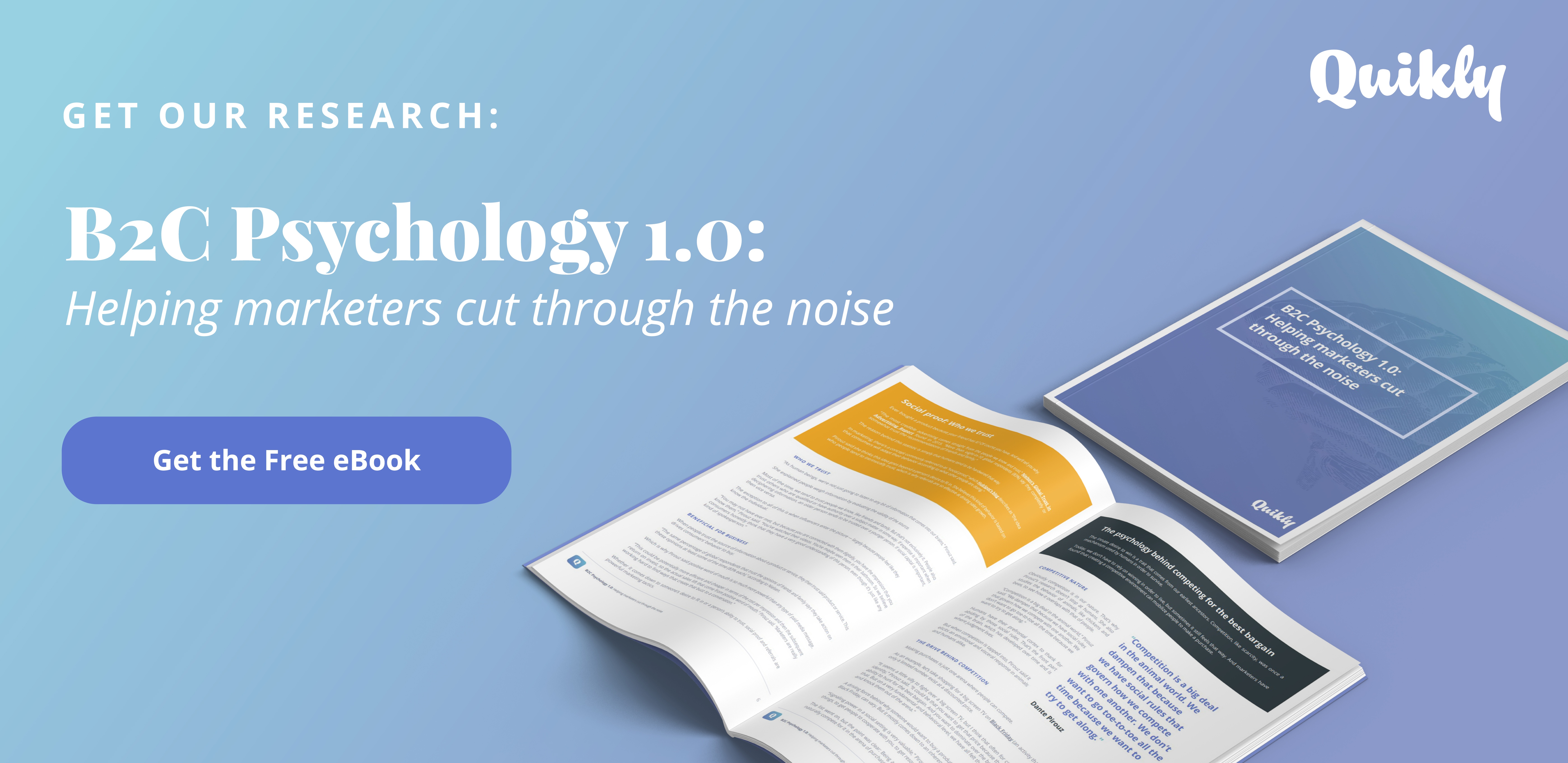
The story of anticipation, as told by a consumer neuroscientist

Whether you're hyping up a new product launch or teasing out a customer incentive as "coming soon," you likely already leverage anticipation within your marketing. Sometimes, when using these types of psychological motivators, it can be helpful to understand both how they work and where they came from. Here's the story of anticipation.
How it all began
“The origin story of anticipation goes far back before humans arrived on the scene,” said Dr. Michael Smith, cognitive neuroscientist and author of "Inspiring Green Consumer Choices." “Essentially all organisms learn to develop expectations about what’s likely to happen in the future, be that a good thing or a bad thing, and those expectations drive their behavior.”
We as humans are wired quite similarly to our furry friends, adapting to our environment and developing critical emotions as a result.
“Humans are like every other species in that regard; we come into the world not knowing a whole lot about it, but we quickly, as part of our learning process, come to develop expectations that can create a sense of positive or negative anticipation depending on what your current concerns are," Smith said.
Anticipation 101
Understanding the inner workings of a human brain may seem difficult, but Smith explains that your mind is simply the sum total of your worldly experiences thus far.
“When you develop an expectation, you’re creating a model of how the world works and that model does a couple of different things: It prepares you perceptually to be alert to events in the environment that are consistent with what you’re anticipating, and it elicits an emotional state that is either positive or negative,” said Smith.
Human actions are often directly related to emotions felt. As expected, feelings of anticipation around positive experiences are usually welcomed with open arms. In fact, Smith says they even influence us to go toward the event in hopes of reaching the desired outcome even faster.
“If it’s a positive emotional state and you’re anticipating something good to happen to you, whether that could be encountering somebody you like or eating something that you prefer, that positive emotional state primes your motor system to lean into the upcoming event and facilitates the acquisition of a reward, whatever that reward might be,” said Smith.
Emotions are tricky, and we won’t always be filled with enjoyable ones. Smith says the wrong kind of anticipation is just as powerful as its counterpart.
“If it’s something that you’re concerned about, your emotions are going to be of a withdrawal nature,” Smith added. “It will cause you to be hesitant, quick to detect signs of a negative occurrence, and drive you to avoid any negative outcome.”
So how can you make sure that consumers are happy hearing about your future promotions?
Positive anticipation starts with trust
Smith says the key to sparking positive anticipation in a consumer is by forming a solid, trustworthy relationship with them.
“The key to developing expectations that will allow you to anticipate whatever is going to happen next comes down to having been rewarded effectively at some point in the past for engaging in one brand’s campaign over another,” he said. “If marketers want to shape the anticipations that consumers have, they need to make sure that consumers interacting with their products and services have a good experience to begin with.”
In other words, brands have to make their mark by delivering quality service if they want to be thought of positively in the eyes of consumers.
“If you’re hungry and you’ve had good experiences at your local restaurant with the burgers they serve, when it comes time for lunch, you almost don’t even need any other queues to know that you can be satisfied by going down to the restaurant,” said Smith. “It happens almost automatically without requiring any kind of deliberation from the consumer.”
This can change, though. In fact, one simple slip of negligence can be potentially catastrophic for business.
“It takes a while to build those positive expectations, but it’s very easy to undermine them by delivering a subpar product or experience to the consumer,” said Smith. “So the key thing to marketers who want to shape the anticipations of the marketplace is to make sure that they deliver positive experiences and product outcomes.”
Anticipation has been around since the dawn of time and we’re sure its effect on consumerism is here to stay. How will your brand make the most of this anticipation story?

Lindsay Keener is a brand journalist for Quikly. She covers stories that help to inform and educate consumer-facing marketers.

